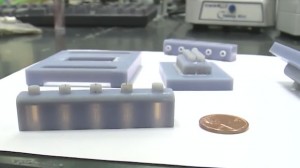NEW YORK (Reuters Health) – Early postnatal magnesium sulfate infusions are neuroprotective in term infants with severe perinatal asphyxia, according to a prospective trial conducted in India and published in the May issue of Pediatrics.
Asphyxia causes high levels of glutamate in the newborn brain, explain Dr. Mushtaq Ahmad Bhat and co-investigators at the Sheri-Kashmir Institute of Medical Sciences in Srinagar. For up to 72 hours, the excess glutamate induces irreversible neuronal injury by opening NMDA channels and allowing excessive calcium influx. Increasing extracellular concentrations of magnesium — an NMDA receptor antagonist — blocks the calcium influx, which animal research indicates has beneficial effects.
The researcher’s trial included 40 term infants admitted to their NICU with severe perinatal asphyxia and moderate or severe hypoxic-ischemic encephalopathy. They were randomly assigned to receive three MgSO4 infusions or placebo.
Both groups received their assigned treatment within 6 hours of birth, then again after 24 and 48 hours. All patients also received normal supportive care for perinatal asphyxia, including hypothermia. Two patients in each group, all with severe hypoxic-ischemic encephalopathy, died during hospitalization.
Abnormal neurologic examination results at discharge were present in 22% of treatment patients and in 56% of placebo patients (p< 0.04), Dr. Bhat




